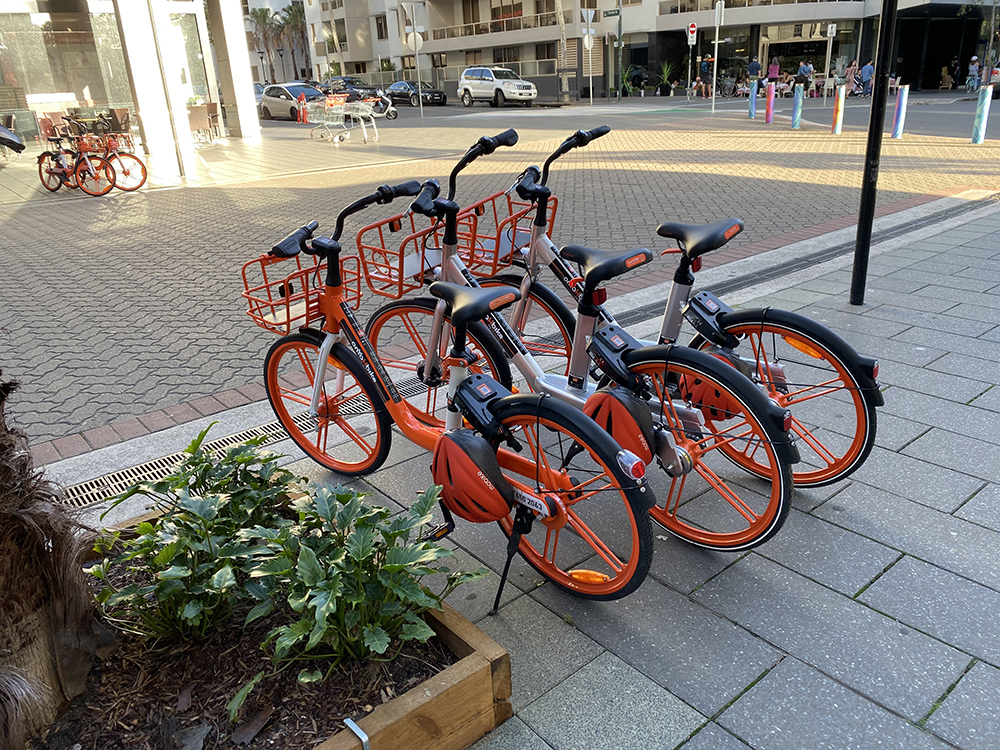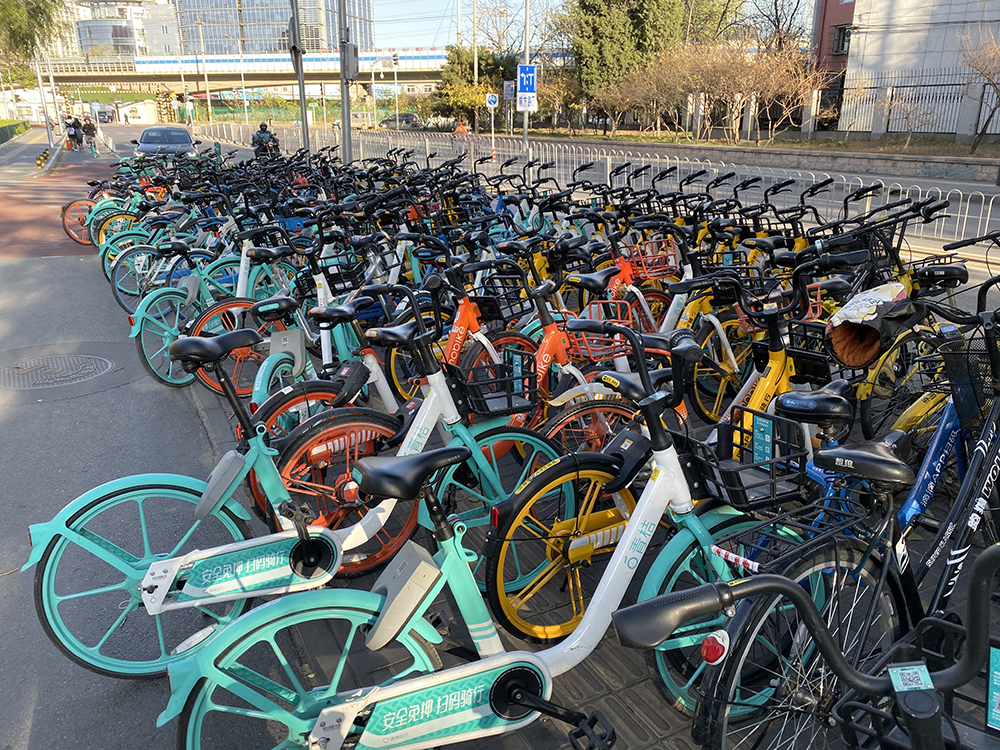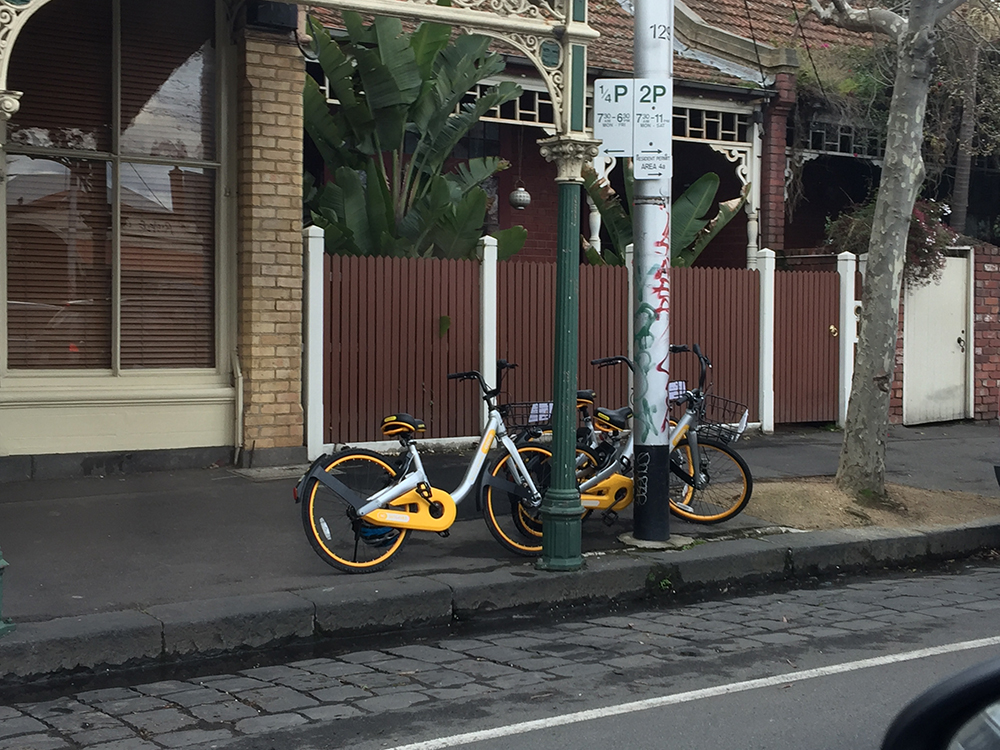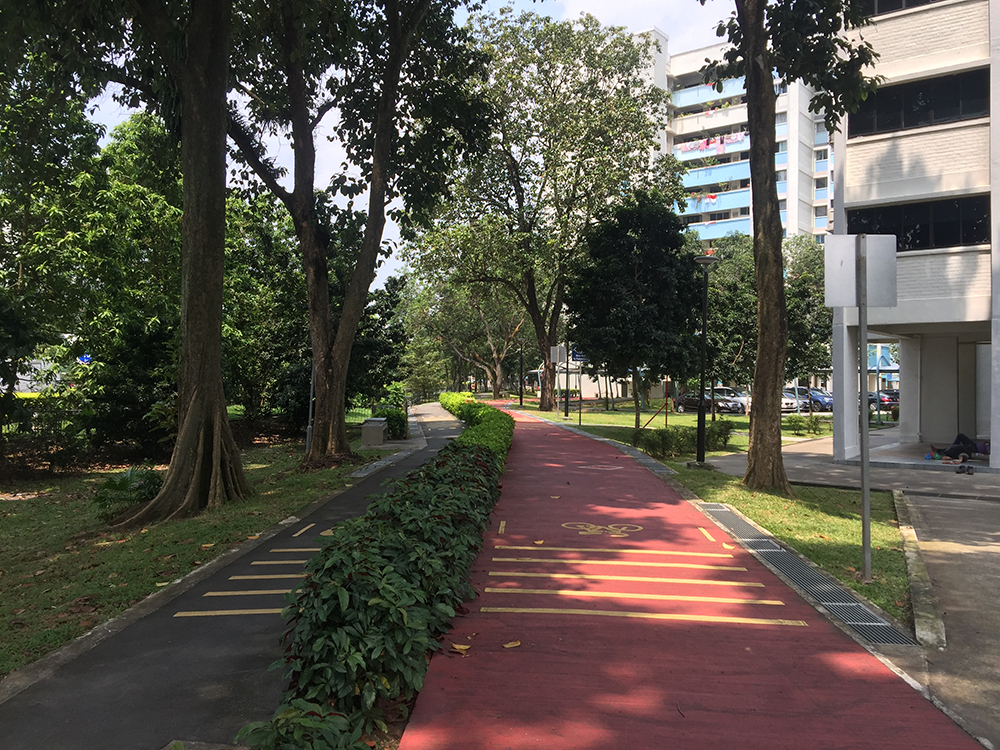MSD at HOME: Melbourne Speaks :: Sun Sheng Han

Online - ABP Zoom Webinar
Lessons from a controversial urban mobility innovation: what has dock-less bike-sharing taught planning researchers and practitioners?
Urban mobility innovations reshape cities with both positive and negative outcomes. The invention of the automobile a hundred years ago, for example, has offered greater mobility to the population and created the automobile city. Yet, although many of us rely upon cars for daily commuting and occasional road trips, the wide use of the automobile has contributed to resource depletion, environment pollution and poor human health. In rectifying many of these unwanted influences and bridging the last-mile gap in urban transport, dock-less bike-sharing evolved in the 21st century, combining innovations that were in place before the automobile age with the latest technology and business management ideas. Dock-less bike-sharing has been welcomed by users and observers because it offers mobility, health and environmental benefits. At the same time, however, it has caused public outcry and controversy due to its disturbance to the established order in terms of both the existing allocation of road spaces among users and the demand-supply relationship between bike-sharing entrepreneurs and bicycle manufacturers. In a short period of three years, dock-less bike-sharing experienced a roller coaster ride from boom to bust in the number of cities where they operate and in the size of their fleets. Footprints of the programs are observable in many cities after their retrieval physically (e.g., the bikes) and/or digitally (e.g., media discussions).
This public lecture draws theoretical and practical lessons for urban planning academics and practicing professionals from my recent research on dock-less bike-sharing. After presenting a brief account of the boom and bust of the dock-less bike-sharing programs, I argue that the controversial urban mobility innovation has contributed an unorthodox co-production model to the basic urban services co-production literature thus has extended the conventional government-citizen approach to a new way of co-production centred on an investor-entrepreneur alliance. This alliance has not only determined the fate of the dock-less bike-sharing programs but also suggested a new dimension to understand the comprehensive range of actors that are depicted in the innovation diffusion theories. The new theoretical insights inform planning practice in managing urban mobility innovations, especially in the areas of entry control, infrastructure planning, regulatory reform and daily operations.
About our presenter:
Dr Han is Professor of Urban Planning at the Faculty of Architecture, Building and Planning, the University of Melbourne. He received his undergraduate degree in Landscape Architecture, a M.Sc. degree in Urban Planning and a Ph.D. degree in Urban and Regional Studies. In his career, Professor Han practiced urban planning in the public sector, conducted research and training in the United Nations, and taught in higher education institutions. He was a tenured associate professor with the National University of Singapore before relocating to Melbourne in mid-2007. Professor Han's research and teaching expertise are in the areas of urban and regional development, strategic planning, and analytical methods in urban studies. He has been working on a research agenda which links theories of the spatial organisation of urban activities with the dynamics of institutional and economic restructuring in the Asia-Pacific region, supported by research grants from national and international funding agencies (e.g., Australian Research Council; National Natural Foundation of China; Asia-Pacific Network for Climate Change Research), industrial sponsors (EM Services Singapore; Arup Hong Kong), and universities (National University of Singapore and the University of Melbourne). Professor Han’s publications have contributed to addressing many urban and regional questions in Southeast Asian countries such as Indonesia, Vietnam, Singapore and Cambodia, and to the understanding of the urban spatial restructuring processes, issues, and outcomes in China. His most recent books include Towards Low Carbon Cities in China (Lead editor, Routledge 2015), Population Mobility, Urban Planning, and Management in China (Co-editor, Springer 2015), Healthy Future Cities (Lead editor, China Architecture Industry Press, 2018), and Planning Quality Streets: Theory and Practice (Lead author, China Architecture Industry Press, 2020).
Presentation and Q+A
Date: Tuesday 29 September 2020
Time: 18:00 - 19:30 AEST* Melbourne (UTC +10)
Venue: Online - ABP Zoom Webinar
Event link: Once you have registered for the event, the event link will be sent to you via your Eventbrite confirmation email and reminder emails.
* London: Tuesday 29 September 2020, 09:00 - 10:30; BST
* Singapore: Tuesday 29 September 2020, 16:00 - 17:30; SGT
* Dubai: Tuesday 29 September 2020, 12:00 - 13:30; GST
* New York: Tuesday 29 September 2020, 04:00 - 05:30; EDT
* Los Angeles: Tuesday 29 September 2020, 01:00 - 02:30; PDT
Beijing
Carlton
Singapore

Zetland


